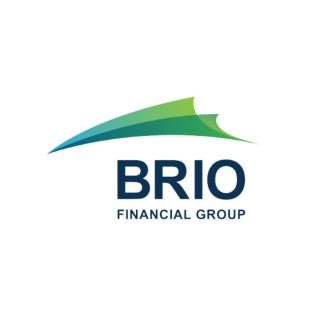
Making a Charitable Contribution
by Brandon Miller on Sep 11, 2024
Making a Charitable Contribution
Presented by Brio Financial Group
Why sell shares when you can gift them? If you have appreciated stocks in your portfolio, you might want to consider donating those shares to charity rather than selling them.
Donating appreciated securities to a tax-qualified charity may allow you to manage your taxes and benefit the charity. If you have held the stock for more than a year, you may be able to deduct from your taxes the fair market value of the stock in the year that you donate. If the charity is tax-exempt, it may not face capital gains tax on the stock if it sells it in the future.1
Keep in mind this article is for informational purposes only. It's not a replacement for real-life advice. Make sure to consult your tax and legal professionals before modifying your gift-giving strategy.
There are several reasons to consider donating highly appreciated stock to a tax-exempt charity. For example, you may own company stock and have the opportunity to donate some shares. There also are potential tax benefits to consider if you donate appreciated securities that you have owned for at least one year.
If you sell shares of appreciated stock from a taxable account and subsequently donate the proceeds from the sale to charity, you may face capital gains tax on any gain you realize, which effectively trims the benefit of cash donation.1
When is donating cash a choice to consider? If you provide the charity with a cash gift, there may be some limitations. Cash gifts are generally deductible up to 60% of adjusted gross income. A donor should also consider state taxes in addition to federal.2
If you donate shares of depreciated stock from a taxable account to a charity, you can only deduct their current value, not the value they had when you originally bought them.1
Remember the tax rules for charitable donations. If you donate appreciated stock to a charity, you may want to review IRS Publication 526, Charitable Contributions. Double-check to see that the charity has non-profit status under federal tax law, and be sure to record the deduction on a Schedule A that you attach to your 1040.1
If your contribution totals $250 or more, the donation must be recorded – that is, the charity needs to give you a written statement describing the donation and its value and whether it is providing you with goods or services in exchange for it.2
If your total deduction for all non-cash contributions in a tax year exceeds $500, then complete and attach Form 8283 (Noncash Charitable Contributions) to your 1040 when filing. If you donate more than $5,000 of property to a charity, you will need to provide a letter from a qualified appraiser to the charity (and, by extension, the IRS) stating the monetary value of the gift(s).2
Gifting cash or other assets to an organization is a wonderful opportunity. But keep in mind that tax rules are constantly being adjusted, and there’s a possibility that the current rules may change. Make certain to consult your tax and legal professionals before starting a new gifting strategy.
1. IRS.gov, 2024
2. IRS.gov, 2024
The content is developed from sources believed to be providing accurate information. The information in this material is not intended as tax or legal advice. It may not be used for the purpose of avoiding any federal tax penalties. Please consult legal or tax professionals for specific information regarding your individual situation. This material was developed and produced by FMG Suite to provide information on a topic that may be of interest. FMG, LLC, is not affiliated with the named broker-dealer, state- or SEC-registered investment advisory firm. The opinions expressed and material provided are for general information, and should not be considered a solicitation for the purchase or sale of any security. Copyright FMG Suite.
